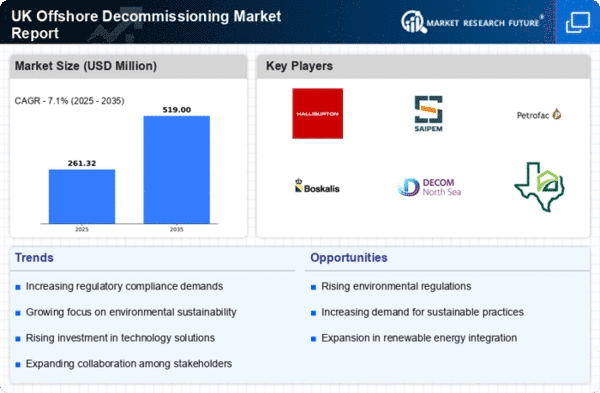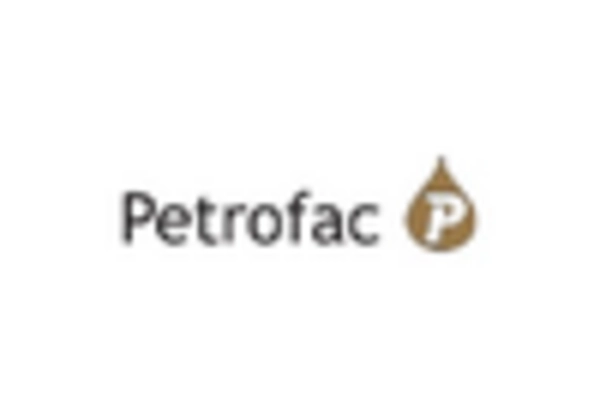Regulatory Framework Evolution
The evolution of regulatory frameworks in the UK is a crucial driver for the offshore decommissioning market. As environmental concerns intensify, the UK government has implemented stricter regulations governing decommissioning activities. This includes the Offshore Petroleum Activities (Conservation of Habitats) Regulations, which mandate that operators adhere to specific environmental standards. Compliance with these regulations is not only essential for legal operation but also influences the financial viability of decommissioning projects. The offshore decommissioning market is projected to grow as companies invest in compliant technologies and practices, with estimates suggesting a market value of £1.5 billion by 2027. This regulatory landscape compels operators to prioritize sustainable practices, thereby shaping the future of the industry.
Aging Infrastructure and Asset Retirement
The aging infrastructure of offshore oil and gas facilities in the UK serves as a significant driver for the offshore decommissioning market. Many platforms are reaching the end of their operational life, necessitating decommissioning to mitigate safety risks and environmental impacts. The UK Continental Shelf has seen a substantial increase in decommissioning activities, with over 200 installations expected to be decommissioned by 2030. This trend indicates a growing demand for decommissioning services, which could potentially reach a market size of £2 billion in the coming years. The offshore decommissioning market is thus positioned to benefit from the urgent need to safely dismantle and remove obsolete structures, ensuring compliance with environmental standards.
Investment in Decommissioning Technologies
Investment in innovative decommissioning technologies is emerging as a pivotal driver for the offshore decommissioning market. The UK is witnessing a surge in research and development aimed at enhancing decommissioning efficiency and reducing costs. Technologies such as remote-operated vehicles (ROVs) and advanced cutting tools are being adopted to streamline operations. The UK government has allocated £20 million to support technological advancements in this sector, indicating a commitment to fostering innovation. As these technologies become more prevalent, they are expected to lower operational costs and improve safety, thereby attracting more investment into the offshore decommissioning market. This trend suggests a potential market growth trajectory that could exceed £1.8 billion by 2028.
Public Awareness and Environmental Advocacy
Public awareness and advocacy for environmental protection are increasingly influencing the offshore decommissioning market. As communities become more informed about the environmental impacts of offshore activities, there is growing pressure on companies to adopt responsible decommissioning practices. This shift in public sentiment is prompting operators to prioritize transparency and sustainability in their decommissioning strategies. The offshore decommissioning market is likely to see a rise in demand for eco-friendly solutions, as stakeholders seek to minimize ecological footprints. This trend may lead to an estimated market growth of £1.2 billion by 2026, as companies align their operations with public expectations and environmental standards.
Collaboration and Partnerships in the Industry
Collaboration and partnerships among stakeholders in the offshore decommissioning market are becoming increasingly vital. The complexity of decommissioning projects necessitates a coordinated approach involving operators, contractors, and regulatory bodies. Joint ventures and strategic alliances are emerging as effective means to share resources, expertise, and risks associated with decommissioning activities. The UK offshore decommissioning market is witnessing a trend towards collaborative frameworks, which can enhance operational efficiency and reduce costs. This collaborative spirit is expected to drive market growth, with projections indicating a potential increase in market value to £1.6 billion by 2029. Such partnerships may also facilitate knowledge transfer and innovation, further strengthening the industry's capacity to address decommissioning challenges.
















